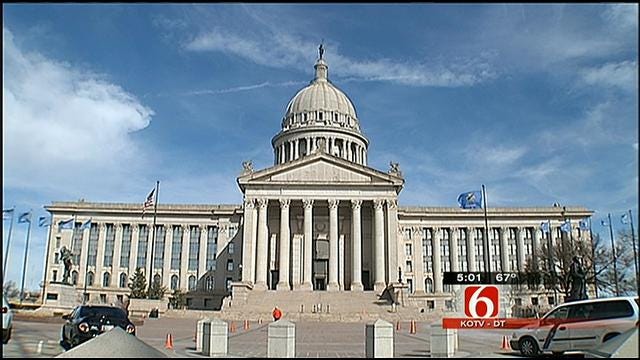Some Uninsured Oklahomans Dread Healthcare Coverage Mandate
In a perfect world, and with a better budget, Sapulpa resident Kristy Alger says she'd have health insurance, but it's been 15 years since she's had any.Tuesday, November 20th 2012, 5:01 pm
The reaction to Oklahoma's rejection of a state-run health insurance exchange has been varied throughout the state.
Oklahoma is one of a number of states that rejected creating the exchange, which is required under the new federal healthcare law.
Some applaud the decision, while others are critical, saying thousands of people need to get guaranteed healthcare coverage and the exchange would have made it easier for them to find affordable options.
But there are some who have a different take on the entire debate, who don't have health insurance, not just because of cost, but also by choice.
11/29/2012 Related Story: Oklahomans Split On Healthcare Exchange Decision
In a perfect world, and with a better budget, Sapulpa resident Kristy Alger says she'd have health insurance, but it's been 15 years since she's had any.
Alger said, for her, not having health insurance has not been a big issue.
She pays $75 per visit, twice each year.
"I'm fine with paying 150 dollars a year compared to two or three hundred dollars out of every paycheck," Alger said.
Those high premiums are why she doesn't have health insurance.
"To me, it's worth paying just that much to go to the doctor when I need to," Alger said.
Although her biggest concern in paying as she goes is if something catastrophic or really expensive happens, Alger says it's a risk she's willing to take.
"If it happens, it happens. I can't worry about that," Alger said.
It's been her experience that her doctor and hospitals will work with patients on payment plans for any outstanding bills.
6/28/2012 Related Story: Oklahoma Lawmaker Explains Insurance Exchanges
And she said finding a doctor wasn't hard.
"I don't feel like my care has suffered in the least," Alger said.
Plus, she said not having insurance has simplified things, since there's no paperwork.
She said she worries that will change with President Obama's new health insurance mandates.
"We shouldn't have to be made to do something," Alger said. "[I] feel like they're making us do something we can't afford to do."
Alger said there are still so many unknowns, but she worries more government regulations could cause a lot of unintended and negative consequences.
"It's just going to be a little bit crazy, I'm afraid," Alger said.
Alger said she fears one of those unintended consequences would be having a harder time getting in to see doctors when you need to, and fewer people choosing medicine as a profession, because of government regulations.
More Like This
November 20th, 2012
September 29th, 2024
September 17th, 2024
Top Headlines
December 15th, 2024
December 15th, 2024
December 15th, 2024
December 15th, 2024











